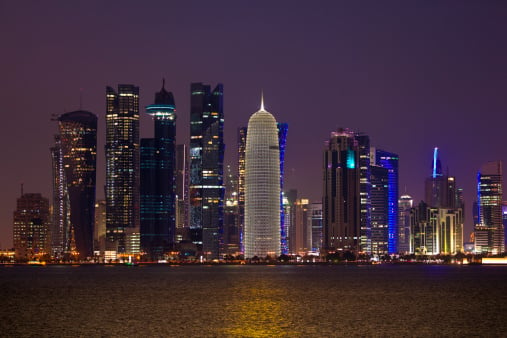Qatar says GCC demands ‘made to be rejected’ as deadline looms
The demands include closing a Turkish military base in Qatar and shutting down the Al Jazeera TV network

Qatar faces possible further sanctions by Arab states that have severed ties with Doha over allegations of links to terrorism, as a deadline to accept a series of demands is expected to expire on Sunday night with no signs of the crisis ending.
Qatari Foreign Minister Sheikh Mohammed bin Abdulrahman al-Thani said the demands were made to be rejected, adding that the Arab ultimatum was aimed not at tackling terrorism but at curtailing his country’s sovereignty.
But he told reporters in Rome that Doha remained ready to sit down and discuss the grievances raised by its Arab neighbours.
“This list of demands is made to be rejected. It’s not meant to be accepted or …to be negotiated,” Sheikh Mohammed said in Rome. “The state of Qatar instead of rejecting it as a principle, we are willing to engage in (dialogue), providing the proper conditions for further dialogue.”
He added that no one had the right to issue an ultimatum to a sovereign country.
The feud erupted last month when Saudi Arabia, the United Arab Emirates, Bahrain and Egypt severed diplomatic and travel ties with Qatar, accusing it of supporting terrorism and being an ally of regional foe Iran, charges which Doha denies.
The countries have threatened further sanctions against Qatar if it does not comply with their list of 13 demands which were presented to Doha by Kuwaiti mediators 10 days ago.
The demands include closing a Turkish military base in Qatar and shutting down the Al Jazeera pan-Arab television network, which Doha also rejected.
Qatar’s Gulf critics accuse Al Jazeera of being a platform for extremists and an agent of interference in their affairs. The network has rejected the accusations and said it will maintain its editorial independence.
FRESH PENALTIES
Gulf countries have insisted the demands were not negotiable.
The UAE ambassador to Russia has said Qatar could face fresh sanctions if it does not comply with the demands.
Gulf states could ask their trading partners to choose between working with them or with Doha, he said in a newspaper interview last week.
But UAE foreign affairs minister Anwar Gargash played down the chances of an escalation, saying “The alternative is not escalation but parting ways”, suggesting Qatar may be forced out of the six-member alliance.
The Western-backed body was formed in 1981 in the wake of Iran’s Islamic Revolution and the outbreak of the Iran-Iraq war, by Saudi Arabia, the United Arab Emirates, Kuwait, Qatar, Oman and Bahrain.
Speaking in Washington last week, the Qatari foreign minister said the GCC was set up to guard against external threats.
“When the threat is coming from inside the GCC, there is a suspicion about the sustainability of the organization,” Sheikh Mohammed told reporters.
The crisis has hit travel, food imports and ratcheted up tensions in the Gulf and sown confusion among businesses, while pushing Qatar closer to Iran and Turkey.
But it has not hit energy exports from Qatar, which is the world’s biggest exporter of liquefied natural gas (LNG) and home to the region’s biggest U.S. military base.
The rift opened days after U.S. President Donald Trump met with Arab leaders in Riyadh and called for unity against regional threats such as Iran and hardline Islamist militant groups.
